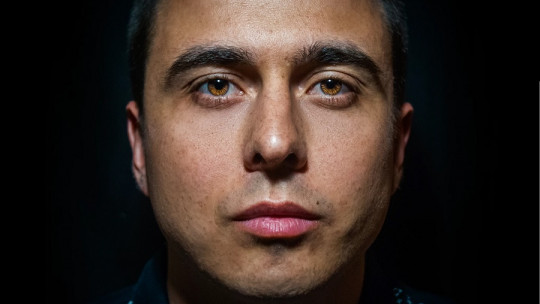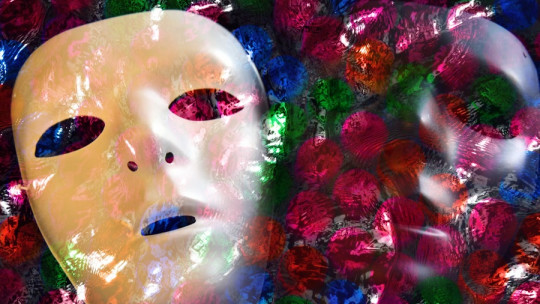Dissociative fugue in psychology is a mental health problem that seriously affects the lives of people who suffer from it. Faced with the consequences that this mental disorder brings, sudden changes are experienced in emotions, thoughts and particular behaviors. In these cases, it is likely to hear from patients who have lost their way and are not able to remember events in the environment and their own lives. At a certain point, this becomes complex if there is no tool to address this problem in time. However, there are effective solutions that allow an improvement in daily life if you have the necessary resources. Having important and effective data allows better decisions to be made in time to reduce discomfort levels.
In this PsychologyFor article we will provide you with information about the Dissociative fugue in psychology: symptoms, causes and treatment
What is dissociative fugue
Dissociative fugue is a mental health disorder characterized by memory loss episodes in certain areas of daily life. In turn, these moments can be accompanied by a ignorance of identity that significantly affects the person who suffers from this clinical condition.
Due to the consequences it has for short and long-term memory, this disorder is also known as dissociative amnesia. Here we explain the Types of amnesia and its characteristics.
Diagnostic criteria of the dissociative fugue
On the other hand, taking as reference the DSM-V(1), it is possible to place dissociative fugue within the group of dissociative identity disorder. However, in order to determine an accurate diagnosis, it is necessary that a series of requirements be met:
- Presence of two or more personality states different.
- One of the states takes control of the person’s actions.
- Inability to remember information about identity.
- Deterioration of work, social and family relationships.
- The alterations cannot be explained by the presence of other mental disorders and/or the ingestion of toxic substances.
In this article you will find more information about Memory loss due to anxiety: symptoms, causes and treatment.

Symptoms of dissociative fugue
This clinical condition presents some manifestations that can be appreciated at the level of emotions, behaviors and thoughts. Below we show you the main symptoms of dissociative fugue:
- Temporary periods of amnesia
- Difficulty in achieving an adequate connection with feelings.
- Misperception of reality
- Stress in various areas of life.
- Impossibility of having lasting interpersonal relationships
- Diffuse ideas about the present and future
Despite presenting some of the symptoms mentioned, it is possible that certain variables such as age, sex, pre-existing diseases, genetic background, among others, may interfere with this clinical picture. Therefore, it is essential that the diagnosis be made by a mental health professional who evaluates the clinical conditions of each person.
Causes of dissociative fugue
To detect this disorder in time, it is crucial to understand the origins that give rise to the symptoms that appear. Taking these issues into account allows us to develop strategies to reduce the degree of discomfort. In this section, we will locate the causes of dissociative fugue:
Environmental factors
Experiences from earlier in life can have a negative effect on mental health. On some occasions, people have suffered traumatic moments that have caused the establishment of a dissociation of the emotions they felt. In these cases, dissociative fugue may be a defense mechanism.
Organic factors
Genetic inheritance plays a fundamental role in the transmission of this problem. In other words, it is important to take into account whether There are relatives who obtained this diagnosis In more specific terms, the central nervous system perceives reality in certain ways that can alter the senses.
Based on research, it has been proven that the brain can be affected after a stressful episode.
Treatment of dissociative fugue
Beyond all the obstacles that this clinical condition has, there are some approaches that lead to an improvement in quality of life. In the next items, we will develop some treatments for dissociative fugue:
Psychological therapy
First of all, going to a mental health professional helps detect the traumatic life situations that caused the symptoms, invites reflection of personal aspects and allows you to build tools to cope in a more enjoyable way with situations that cause stress or prolonged anxiety.
Psychiatric medication
In the event that this disorder leads to a danger to the person’s life and/or to third parties, one of the most viable options is the provision of anti-anxiety medications These drugs make changes to the neuronal connections found in the central nervous system, which provides significant relief and a better understanding of reality.
However, it is essential that the intake of any medication is supervised by a mental health professional specialized. In this article you will find more information about the Types of anxiolytics.

This article is merely informative, at PsychologyFor we do not have the power to make a diagnosis or recommend a treatment. We invite you to go to a psychologist to treat your particular case.
If you want to read more articles similar to Dissociative fugue in psychology: symptoms, causes and treatment we recommend that you enter our Clinical Psychology category.
- American Psychiatric Association (2013). Diagnostic and Statistical Manual of Mental Disorders (5th edition). Arlington: Panamericana Medical Publishing.
Bibliography
- De Rezende Borges, L., Ramos Muñoz, A., González, JC (2011). The dissociative fugue. About a case and a brief bibliographic review. Magazine of the Spanish Association of Neuropsychiatry, 31 (112), 725-731.
- Marín Rullan, M., Dujo López, V., González Trijueque, D. (2013). Dissociative disorders: Clinical approach and analysis of the forensic repercussions on the perpetrator within the criminal sphere. Clinical, Legal and Forensic Psychopathology Magazine, 13 (1), 73-104.








